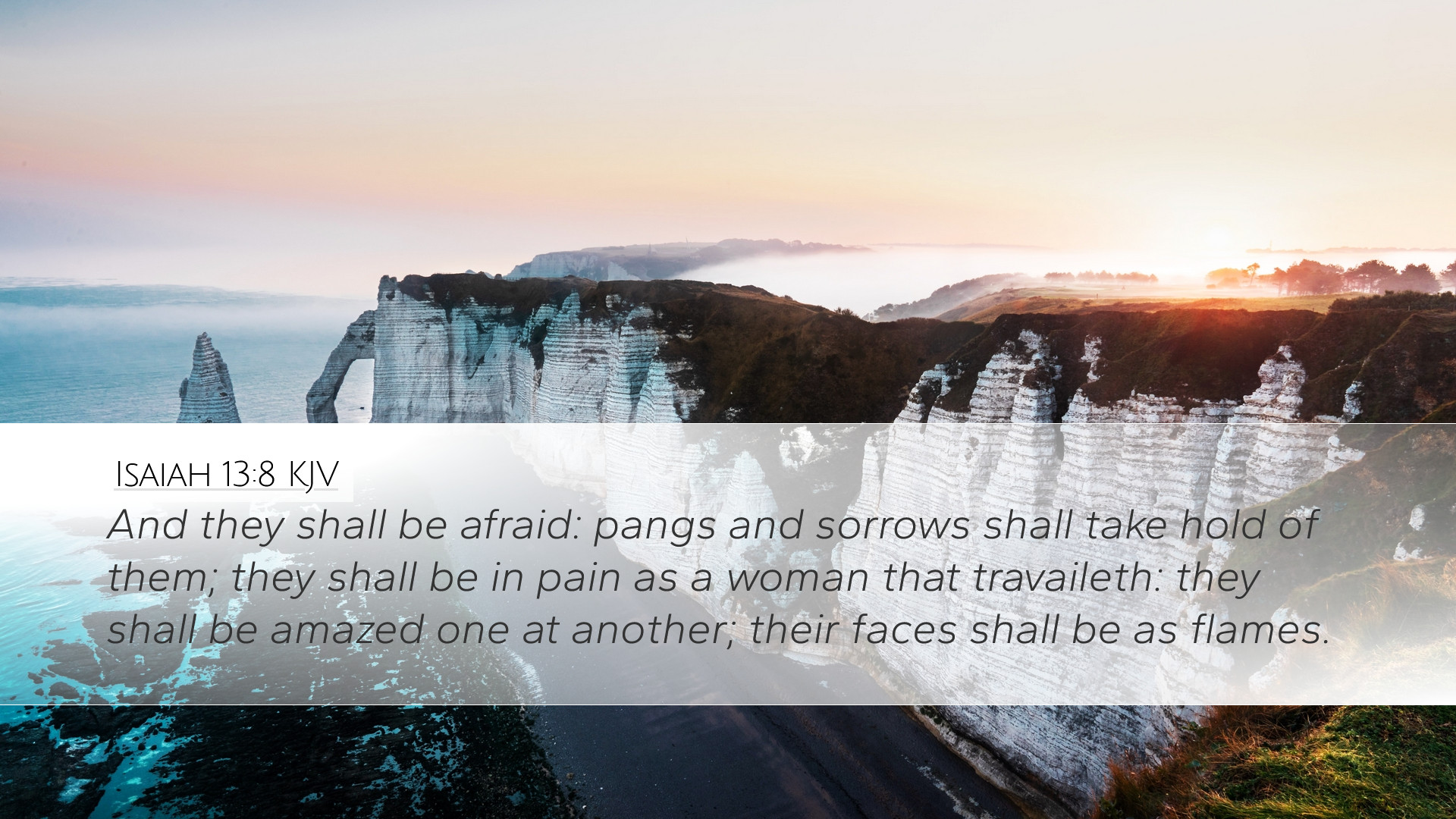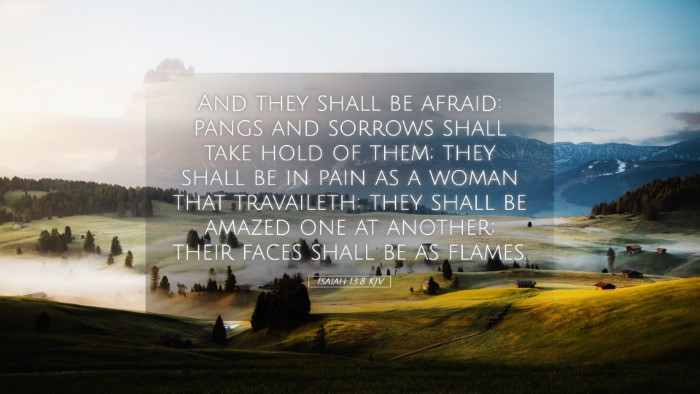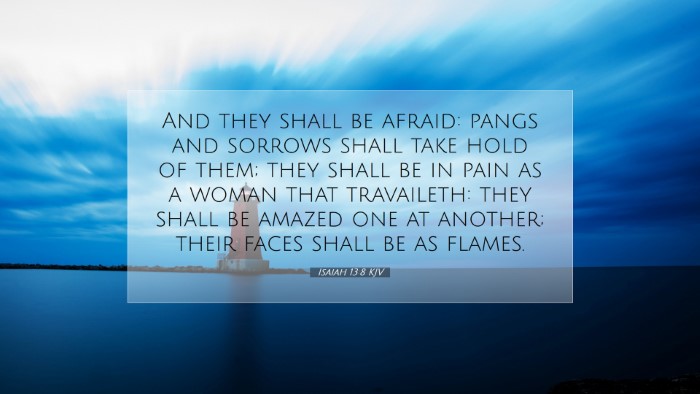Commentary on Isaiah 13:8
Verse: "And they shall be afraid: pangs and sorrows shall take hold of them; they shall be in pain as a woman that travaileth: they shall be amazed one at another; their faces shall be as flames."
Contextual Overview
This verse is part of a larger prophecy concerning the impending judgment against Babylon. Isaiah 13 through Isaiah 23 contains messages that reflect the divine sovereignty over nations. The judgment on Babylon is particularly emphasized, demonstrating both the historical context of the prophet's message and the theological implications of God's control over world affairs.
Exegetical Insights
-
Fear and Distress:
Isaiah paints a vivid picture of the terror that will grip Babylon in the face of God's judgment. Matthew Henry notes the overwhelming fear that grips the heart when God acts against the proud and mighty.
-
Pangs and Sorrows:
The use of childbirth imagery indicates the intensity of the suffering that awaits the wicked. Adam Clarke explains that just as a woman experiences intense pain during childbirth, so too will Babylon experience unbearable distress.
-
Amazement and Confusion:
In a time of crisis, those who once stood in pride will find themselves bewildered. Albert Barnes comments on the chaotic scenario where the mightiest nations are reduced to mere astonishment in the presence of divine judgment.
-
Faces as Flames:
Clarke elaborates that the imagery of their faces burning with fear symbolizes not only their inner turmoil but their outer manifestation of guilt and horror as they face God’s wrath.
Theological Reflections
This passage goes beyond its immediate historical context and reaches into understanding God's nature as a righteous judge. It highlights the certainty of judgment for those who oppose His will and the intensity with which they will experience His wrath.
The Righteous Judgment of God
Both Henry and Barnes emphasize the theme of divine retribution. The verse serves as a reminder that God is not indifferent to the actions of nations. Rather, He holds nations accountable for their deeds.
Implication for Nations Today
The prophetic nature of this verse challenges contemporary readers to reflect on the moral and spiritual state of their own nations. If God acted in judgment against a powerful Babylon, what might He do against modern nations engaging in similar pride and injustice?
Practical Applications
-
Preparation for Judgment:
The fear and pain described in the verse remind us that preparation for divine encounters is crucial. As pastors and leaders, there needs to be an emphasis on the need for repentance and humility before God.
-
The Role of the Church:
The church is called to speak out against injustices and to shine a light in the spiritual darkness that may lead a nation to judgment. Engaging in social justice, mercy, and evangelism is critical in light of such prophecies.
-
Personal Reflection:
For individual believers, this verse serves as a prompt for self-examination. Are there areas in life that mirror the pride and rebellion described in Babylon? Are we living in a way that reflects the character of Christ?
Conclusion
Isaiah 13:8 serves as a sobering reminder of the consequences of turning away from God. It illustrates the fearsome power of God and calls for humility, repentance, and vigilance among believers and leaders alike. The vivid imagery and emotional weight of this verse compel us to take God's sovereignty seriously as we navigate the complexities of faith and society.


